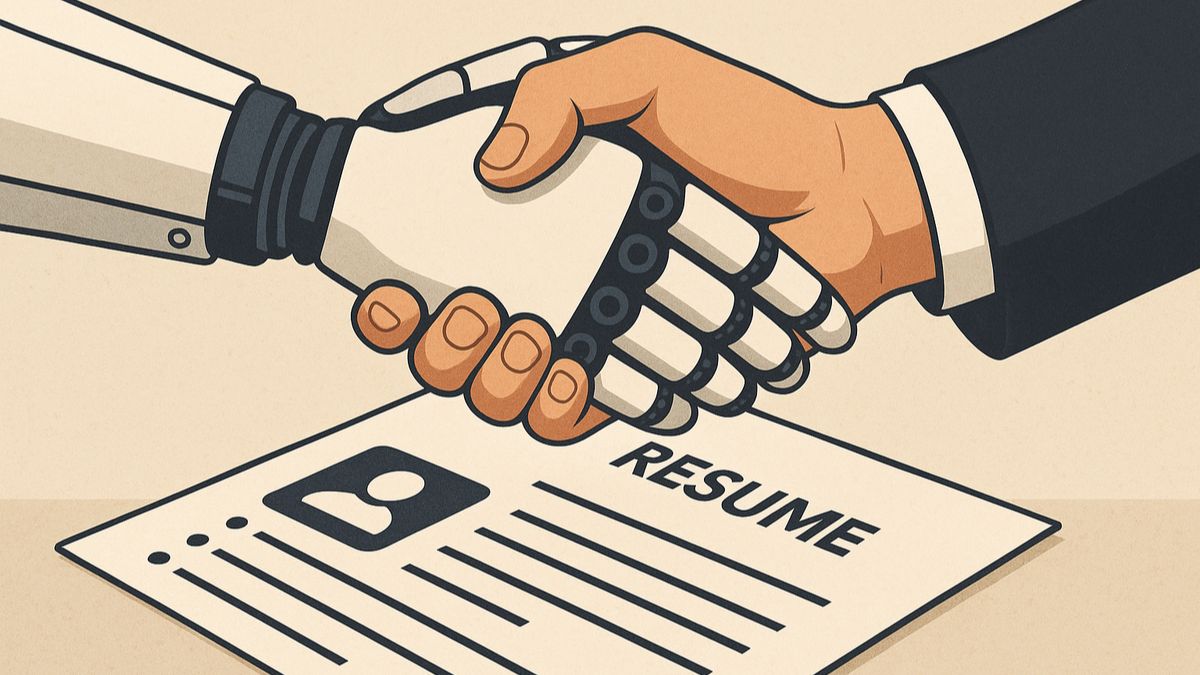AI Recruitment Best Practices: 7 Powerful Benefits Transforming Hiring in 2025
AI Recruitment Best Practices: 7 Powerful Benefits Transforming Hiring in 2025. The recruitment landscape has transformed dramatically with artificial intelligence. AI recruitment best practices are no longer optional—they’re essential for companies seeking competitive advantages in talent acquisition. At Mahad Manpower, we’ve processed over 10,000 successful placements across UAE, Kenya, and India in 2024 alone using AI-enhanced recruitment strategies.
AI Recruitment Best Practices: 7 Powerful Benefits
AI Recruitment Best Practices: Understanding and implementing AI in recruitment can reduce hiring time by up to 75% while improving candidate quality. Whether you’re hiring for Dubai, Nairobi, or Mumbai, these seven powerful benefits demonstrate why AI has become indispensable in modern recruitment. Benefits of AI in recruitment
1. Smart Resume Screening: From Weeks to Hours
AI Recruitment Best Practices: AI-powered systems analyze thousands of resumes in minutes, identifying qualified candidates based on skills, experience, and job requirements. Traditional resume screening consumes countless hours of recruiter time—AI eliminates this bottleneck completely.
Real Mahad Manpower Example: Last quarter, we received 5,000 applications for a major construction project in Dubai. Our AI system screened all applications in just 3 hours, shortlisting 150 qualified candidates. The same process would have taken our team 2 weeks manually—a 96% time reduction.
For Employers: Screen high-volume applications instantly while maintaining quality standards. AI identifies top candidates you might miss in manual reviews.
For Job Seekers: Your qualifications get evaluated objectively, regardless of resume format. AI ensures your skills are noticed.
For Recruitment Agencies: Handle multiple client requests simultaneously without expanding your team, allowing agencies like Mahad Manpower to serve more companies efficiently.
2. Intelligent Interview Selection: Only Meet the Best
One of the most valuable AI recruitment best practices involves pre-interview candidate assessment. AI analyzes video interviews, written responses, and skill assessments to evaluate candidate suitability before human interviews begin.
The Numbers Don’t Lie:
- Traditional hiring: Interview 20 candidates to make 1 hire
- AI-enhanced hiring: Interview 5 candidates to make 1 hire
- Time saved per position: 15-20 hours
For Employers: Your management team only interviews pre-qualified candidates, eliminating wasted time with mismatched applicants.Diversity and inclusion
For Job Seekers: Demonstrate actual skills through objective assessments rather than relying solely on personal connections.
For Agencies: Higher placement success rates mean happier clients. Our AI matching increased our successful placement rate from 68% to 87% in one year.
3. Job Offer Verification: Protecting Everyone
AI Recruitment Best Practices now includes sophisticated verification systems that protect all stakeholders. According to the U.S. Federal Trade Commission (https://www.ftc.gov), employment scams cost job seekers over $68 million in 2023 alone.
How AI Protects:
- Cross-references company information against databases
- Verifies salary ranges match market standards using data from the U.S. Bureau of Labor Statistics (https://www.bls.gov)
- Checks work permit eligibility automatically
- Flags suspicious job postings before they reach candidates
For Job Seekers: AI verifies if companies and salary offers are legitimate, protecting you from scams and false promises.
For Employers: Ensure candidates have realistic expectations about compensation and requirements, reducing post-hire dissatisfaction.
For Agencies: Build unshakeable trust and reputation by providing only verified, legitimate opportunities. At Mahad Manpower, our verification system ensures 92% of placed candidates remain with employers after 12 months.
4. Talent Acquisition at Scale: Quality Meets Quantity
AI Recruitment Best Practices: Scaling recruitment without sacrificing quality seems impossible—until AI enters the equation. AI maintains consistent evaluation standards across unlimited candidate volumes.
Real-World Impact: When a Kenyan telecommunications company needed 50 customer service representatives in 30 days, our AI system screened 3,200 applications, conducted initial assessments for 400 candidates, and helped the client hire 52 people in 28 days.
For Employers: Access global talent pools efficiently and fill multiple positions simultaneously across different locations and skill levels.
For Job Seekers: Get discovered for opportunities you didn’t know existed through AI matching that actively connects your profile to new positions.
For Agencies: Serve more clients without proportionally increasing team size. We’ve grown our client base by 140% while only expanding our team by 30%.
5. Cost Reduction: Real Money, Real Savings
Implementing AI recruitment best practices delivers measurable return on investment with substantial cost savings throughout the hiring process.
Average Cost Per Hire:
- Traditional recruitment: $4,000-$7,000
- AI-enhanced recruitment: $2,000-$3,500
- Your savings: 40-50% per position
For Employers: Reduce cost-per-hire by 30-50% through faster processes and better matches. Lower turnover rates mean fewer repeated hiring cycles, saving even more money long-term.
For Job Seekers: Access free AI-powered resume optimization and interview preparation tools, leveling the playing field regardless of background.
For Agencies: Automate administrative tasks that typically consume 60% of recruiter time, allowing teams to focus on relationship building and strategic advising.
6. Perfect Salary and Benefits Matching
AI analyzes vast compensation databases to ensure fair, competitive offers. Nothing kills a placement faster than salary mismatches—AI solves this with data-driven precision.
Our AI systems analyze compensation data from multiple sources including regional labor statistics, industry benchmarks, and real-time market trends to ensure accurate offers.
For Job Seekers: Understand your true market value across UAE, Kenya, and India. Compare multiple offers with confidence, knowing the data backs your decisions.
For Employers: Stay competitive without overpaying. Get real-time salary intelligence specific to your industry, location, and role requirements. Our clients report 25% better offer acceptance rates.
For Agencies: Data-backed salary recommendations eliminate negotiation friction and build trust with both parties.
7. Enhanced Satisfaction for All Stakeholders
AI Recruitment Best Practices: The ultimate benefit of AI in recruitment is simple: everyone wins. Better matching through AI leads to longer retention, higher job satisfaction, and stronger employer brands.
Measurable Results:
- 92% retention rate after 12 months (vs. industry average of 65%)
- 87% of placed candidates rate their role 4/5 stars or higher
- 40% increase in quality applicants for clients
- 60% of new clients come from referrals
For Everyone: AI creates win-win scenarios where candidates find fulfilling careers, employers build strong teams, and agencies develop lasting partnerships that generate consistent business.
Conclusion: Your Next Step in AI-Powered Recruitment
AI recruitment best practices aren’t the future—they’re the present. Companies using AI aren’t just working faster; they’re working smarter with better results, lower costs, and higher satisfaction rates.
At Mahad Manpower, we’ve combined cutting-edge AI technology with deep regional expertise across UAE, Kenya, and India. We’ve successfully placed over 10,000 candidates in 2024, achieving a 92% retention rate that far exceeds industry standards.
The question isn’t whether to adopt AI recruitment—it’s whether you can afford not to.




 1. Empathy and Emotional Intelligence
1. Empathy and Emotional Intelligence